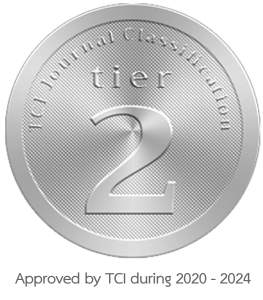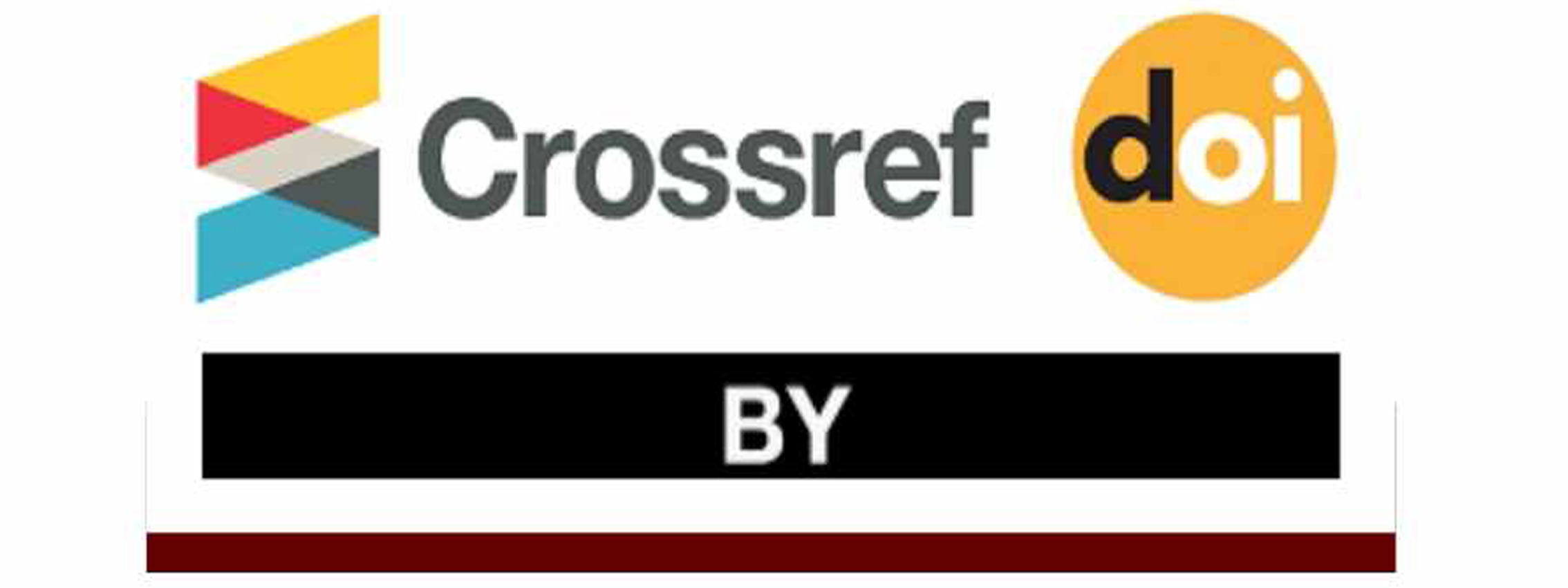Exploring the influence of word exposure via Facebook on young EFL learners’ written forms of word knowledge
DOI:
https://doi.org/10.62819/jel.2024.275Keywords:
facebook, receptive and productive written forms, vocabulary size, word knowledge, word exposureAbstract
This quantitative study aimed to investigate the impact of word exposure via Facebook on the vocabulary knowledge of Thai EFL primary school learners. Additionally, it sought to examine differences in receptive and productive written forms of word knowledge between different education levels. It explored the relationship between participants’ vocabulary size and word knowledge. Forty students from grades four and six participated in the study, which involved designing and validating tests to measure receptive and productive written forms of word knowledge. Descriptive and inferential statistics were employed to analyze quantitative data. The findings indicated significant improvements in students’ receptive and productive vocabulary knowledge, with noticeable development in their understanding of word spelling. Furthermore, grade six learners performed better than grade four learners on receptive and productive written form measures. Correlational analysis revealed a relationship between vocabulary size and knowledge of written forms, indicating their interdependency. Overall, this study suggests that exposure to words through Facebook positively influences vocabulary acquisition, underscoring the importance of word exposure experiences in learning vocabulary. Additionally, it highlights the predictive role of vocabulary size in the written form of word knowledge. This study offers implications for practitioners and provides suggestions for future research directions.
References
Abbas, J., Aman, J., Nurunnabi, M., & Bano, S. (2019). The impact of social media on learning behavior for sustainable education: Evidence of students from selected universities in Pakistan. Sustainability, 11(6), 1683. https://doi.org/10.3390/su11061683
Al-Smadi, S. (2013). The role of using facebook in improving English. TOJSAT: The Online Journal of Science and Technology, 3(1), 166–172.
Cohen, J. (1988). Statistical power analysis for the behavioral sciences. 2nd ed. Hillsdale, NJ: Lawrence Erlbaum Associates.
Cohen, J. (1990). Statistical power analysis for the behavioral sciences. Computers, Environment and Urban Systems, 14(1), 71. https://doi.org/10.1016/0198-9715(90) 90050-4
Craik, F. I. M., & Lockhart, R. S. (1972). Levels of processing: A framework for memory research. Journal of Verbal Learning and Verbal Behavior, 11(6), 671–684. https:// doi.org/10.1016/s0022-5371(72)80001-x
Davis, A., Nguyen, B. (2022). The impact of social media on EFL learners’ vocabulary acquisition. Journal of Language and Technology, 24(3), 50–68.
Ellis, R., & He, X. (1999). The roles of modified input and output in the incidental acquisition of word meanings. Studies in Second Language Acquisition, 21(2), 285–301. https://doi.org/10.1017/s0272263199002077
Espinosa, L. F. (2015). The use of Facebook for educational purposes in EFL classrooms. Theory and Practice in Language Studies, 5(11), 2206. https://doi.org/10.17507/ tpls.0511.03
Fatima, S., Nawaz, N., & Hussain, M. (2023). Facebook vs. Face-to-Face discourse in English: A gender-based study of conversational styles. Global Digital & Print Media Review, 6(2), 288–298. https://doi.org/10.31703/gdpmr.2023(vi-ii).20
Flores-González, N., Castelán-Flores, V., Zamora-Hernández, M., & Flores-González, E. (2019). Facebook as a tool to learn English vocabulary. Revista De Docencia E Investigación Educativa, 10–19. https://doi.org/10.35429/jter.2019.16.5.10.19
Hopkins, W. G. (2002). A scale of magnitudes for effect statistics. A new view of statistics, 502(411), 321.
Hulstijn, J., & Laufer, B. (2001). Some empirical evidence for the involvement load hypothesis in vocabulary acquisition. Language Learning, 51, 539–558. http://doi.org/ 10.1111/0023-8333.00164
Johnson, M. (2020). Social media as a learning tool in language education. The EFL Journal, 15(2), 134–149.
Kim, Y., & Park, J. (2021). Peer feedback in EFL learning via social media platform. Language Learning in Higher Education, 31(1), 201–217.
Laufer, B. (1998). The development of passive and active vocabulary in a second language: same or different? Applied Linguistics, 19(2), 255–271. https://doi.org/10.1093/app lin/19.2.255
Laufer, B., & Goldstein, Z. (2004). Testing vocabulary knowledge: Size, strength, and computer adaptiveness. Language Learning, 54(3), 399–436.
Laufer, B., & Hulstijn, J. H. (2001). Incidental vocabulary acquisition in a second language: the construct of task-induced involvement. Applied Linguistics, 22(1), 1–26. https:// doi.org/10.1093/applin/22.1.1
Lee, A. (2019). Exploring the potential of social media to supplement traditional language learning. EFL Quarterly, 8(4), 325–341.
Li, S., Ellis, R., & Zhu, Y. (2019). The associations between cognitive ability and L2 development under five different instructional conditions. Applied Psycholinguistics, 40(03), 693–722. https://doi.org/10.1017/s0142716418000796
Luque, A. G., & Morgan-Short, K. (2021). The relationship between cognitive control and second language proficiency. Journal of Neurolinguistics, 57. https://doi.org/10.10 16/j.jn euroling.2020.100956
Magnussen, E., & Sukying, A. (2021). The impact of songs and TPR on Thai preschoolers’ vocabulary acquisition. THAITESOL Journal, 34(1), 71-95.
Matwangsaeng, R., & Sukying, A. (2023). The effects of morphological awareness on L2 vocabulary knowledge of Thai EFL young learners. World Journal of English Language, 13(2), pp. 51-63. https://doi.org/10.5430/wjel.v13n2p51
Mochizuki, M., & Aizawa, K. (2000). An affix acquisition order for EFL learners: an exploratory study. System, 28(2), 291–304. https://doi.org/10.1016/s0346-251x(00)00013-0
Nation, P. (2006). How large a vocabulary is needed for reading and listening? Canadian Modern Language Review, 63(1), 59–82. https://doi.org/10.3138/cmlr.63.1.59
Nation, I. S. P. (2013). Learning vocabulary in another language. Cambridge University Press.
Nation, I. S. P. (2022). Learning vocabulary in another language (Cambridge Applied Linguistics) (3rd ed.). Cambridge University Press.
Nation, I.S.P., & Meara, P. (2010). Vocabulary. In N. Schmitt (Ed.), An introduction to applied linguistics (Second Edition) (pp. 34–52). Edward Arnold.
Nesrallah, O., & Zangana, I. M. (2020). Impact of social media in Learning EFL Iraqi students’ New words. Utopía Y Praxis Latinoamericana: Revista Internacional De Filosofía Iberoamericana Y Teoría Social, 1, 436–449. https://dialnet.unirioja.es/ descarga/articulo/7411413.pdf
Patel, R. (2023). Repurposing social media for educational achievements in language acquisition. Innovations in Language Learning and Teaching, 17(1), 45–6
Ponsamak, N., & Sukying, A. (2023). Utilizing facebook input to enhance vocabulary knowledge in young EFL learners. English Language Teaching, 16(12), 68–80. https://doi .org/10.5539/elt.v16n12p68
Rodliyah, R. S. (2016). Using facebook closed group to improve EFL students’ writing. TEFLIN Journal, 27(1), 82–100. https://doi.org/10.15639/teflinjournal.v27i1/82-100
Schmidt, R. (2012). Chapter 2. Attention, awareness, and individual differences in language learning. In W. Chan, K. Chin, S. Bhatt & I. Walker (Ed.), Perspectives on individual characteristics and foreign language education (pp. 27–50). De Gruyter Mouton. https://doi.org/10.1515/9781614510932.27
Schmitt, N. (2008). Review article: Instructed second language vocabulary learning. Language Teaching Research, 12(3), 329–363. https://doi.org/10.1177/1362168808 089921
Schmitt, N. (2010). Researching vocabulary: A vocabulary research manual. Palgrave Macmillan. http://dx.doi.org/10.1057/9780230293977
Smith, J., & Doe, E. (2021). Vocabulary development among young EFL learners through Facebook. Journal of Digital Language Learning, 5(2), 88–102
Sukying, A. (2018). Investigating receptive and productive affix knowledge in EFL learners. In D. Hirsh (Ed.), Explorations in second language vocabulary research (pp. 183–218). Peter Lang.
Sukying, A., & Matwangsaeng, R. (2022). Exploring primary school students’ morphological awareness in Thailand. World Journal of English Language, 12(6), 388–401. https://doi .org/10.5430/wjel.v12n6p388
Thompson, A., & Robinson, D. (2021). Factors influencing language acquisition on social media platforms. Language Education Today, 29(3), 175–190.
Wan-A-Rom, U. (2010). Self-assessment of word knowledge with graded readers: A preliminary study. Reading in a Foreign Language, 22(2), 323–338. https://files.eric. ed.gov/fulltext/EJ901550.pdf
Wang, L. (2022). Engaging with English: The role of social media in informal language learning. Modern Language Journal, 106(1), 58–73
Webb, S. (2005). Receptive and productive vocabulary learning: The effects of reading and writing on word knowledge. Studies in Second Language Acquisition, 27(01). https:// doi.org/10.1017/s0272263105050023
Webb, S. (2008). The effects of context on incidental vocabulary learning. Reading in a Foreign Language, 20(2), 232–245. https://files.eric.ed.gov/fulltext/EJ815123.pdf
Webb, S., & Nation, P. (2017). How vocabulary is learned. Oxford University Press.
Yowaboot, C., & Sukying, A. (2022). Using digital flashcards to enhance Thai EFL primary school students’ vocabulary knowledge. English Language Teaching, 15(7), 61. https: //doi.org/10.5539/elt.v15n7p61


















